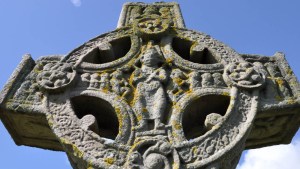Unlike various countries in the world, Ireland was converted to Christianity through the peaceful preaching of St. Patrick and the country’s “Twelve Apostles,” and not a host of martyrs. For many centuries the Catholics in Ireland were not persecuted by a governmental body (though there were some interior squabbles).
That was the case until the 16th century when King Henry VIII began a persecution of Catholics after his excommunication from Rome. This lasted until about 1713, with persecution rising and falling during that time frame.
According to a letter written by a local bishop to the pope at the time, their persecutors “were burning houses, destroying churches, ravishing maids, robbing and killing unoffending persons. They kill … all priests who pray for the pope or refuse to erase his name from the canon of the Mass, and they torture preachers who do not repudiate his authority. It would fill a book to detail their cruelty.”
Over this time frame countless churches and monasteries were seized and destroyed and many Catholics were condemned to death.
It eventually became evident that there needed to be a single feast for all those martyrs, both known and unknown and June 20 was established as the feast of “Irish Martyrs.” St. John Paul II beatified a larger group of these martyrs in 1992 and had the following words to say about these holy witnesses who further sanctified the Emerald Isle with their blood.
In a decisive hour, a whole people chose to stand firmly by its covenant with God: “All the words which the Lord has spoken we will do.” Along with Saint Oliver Plunkett, the new Beati constitute but a small part of the host of Irish Martyrs of Penal Times. The religious and political turmoil through which these witnesses lived was marked by grave intolerance on every side. Their victory lay precisely in going to death with no hatred in their hearts. They lived and died for Love. Many of them publicly forgave all those who had contributed in any way to their martyrdom.The Martyrs’ significance for today lies in the fact that their testimony shatters the vain claim to live one’s life or to build a model of society without an integral vision of our human destiny, without reference to our eternal calling, without transcendence. The Martyrs exhort succeeding generations of Irish men and women: “Fight the good fight of the faith; take hold of the eternal life to which you were called . . . keep the commandment unstained and free from reproach until the appearing of our Lord Jesus Christ.” To the Martyrs’ intercession I commend the whole people of Ireland: their hopes and joys, their needs and difficulties. May everyone rejoice in the honour paid to these witnesses to the faith. God sustained them in their trials. He comforted them and granted them the crown of victory. May he also sustain those who work for reconciliation and peace in Ireland today!Blessed Irish Martyrs, intercede for the beloved Irish people!

Read more:
Who were the ’12 Apostles of Ireland’?

Read more:
This prayer of St. Patrick protects you in spiritual combat

